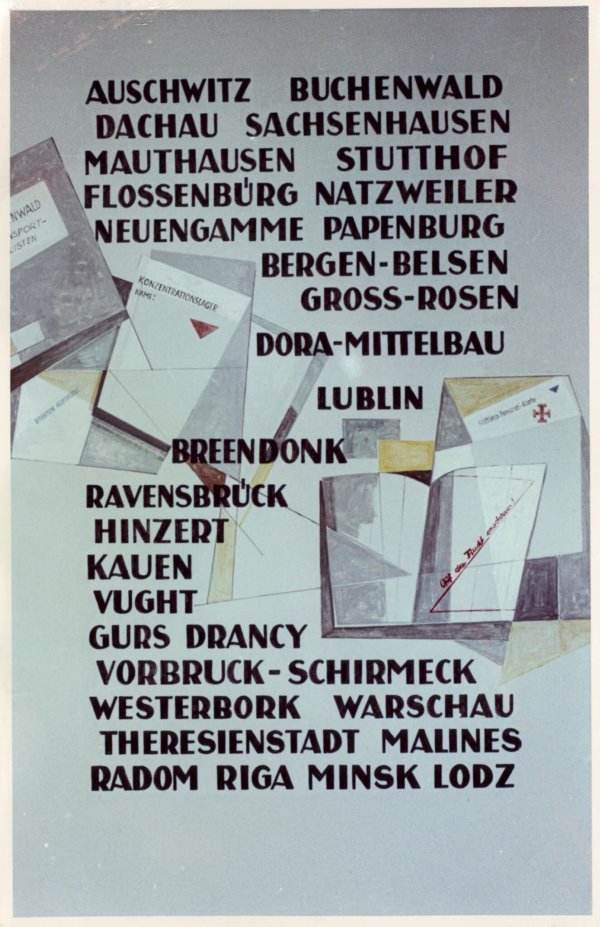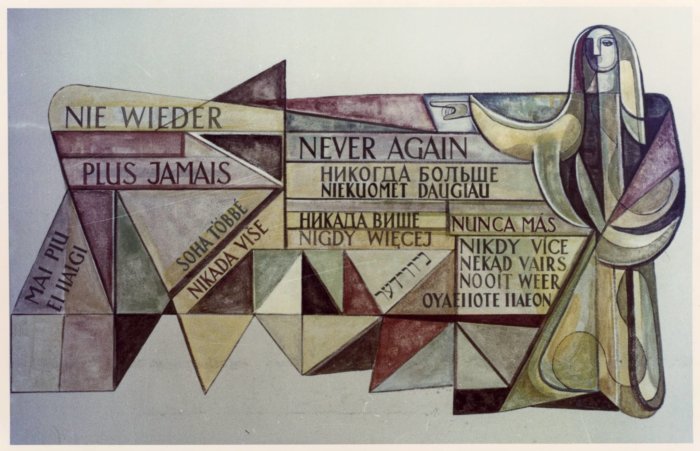Who we are
The Arolsen Archives are the international center on Nazi persecution with the world’s most comprehensive archive on the victims and survivors of National Socialism. The collection has information on about 17.5 million people and belongs to UNESCO’s Memory of the World. It contains documents on the various victim groups targeted by the Nazi regime and is an important source of knowledge for society today.

Floriane Azoulay, is the current Director of the institution which was founded shortly after the war as the International Tracing Service (ITS). A French human rights expert, she was appointed head of the institution by the International Commission (IC) of the Arolsen Archives in 2016. Steffen Baumheier became Deputy Director in 2017.
The International Commission
The International Commission (IC), which oversees the work of the Arolsen Archives on behalf of former victims of persecution, is made up of government representatives from the eleven member states. The IC has been responsible for establishing the framework for the work of the institution since the Bonn Treaties of 1955. The member states rotate in holding the chair for one year — in 2023/24, it is the Federal Republic of Germany.
The IC is composed of government representatives from the following countries:
- Belgium
- France
- Federal Republic of Germany
- Greece
- Israel
- Italy
- Luxembourg
- The Netherlands
- Poland
- United Kingdom
- United States of America
»Based on our unique collection on the victims of Nazi persecution, we honor their legacy by engaging with today´s society to preserve historical truth and stand up for respect, diversity and democracy.«
Mission Statement of the Arolsen Archives
Records of Remembrance
This video from 2019 is a film portrait of the Arolsen Archives which provides an insight into our archive and the work we do.
Legal Basis
The Berlin Treaties of 2011 provide the legal basis for the Arolsen Archives. They replace the Bonn Treaties of 1955 and regularize, among other things, the funding of the Arolsen Archives by the Federal Government, or more precisely by the Federal Foreign Office. The institution is also allowed to raise and accept money from public or private sources and so we are currently expanding our fundraising activities. The Federal Archive of the Federal Republic of Germany has been the institutional partner of the Arolsen Archives since 1st January 2013. If you would like more detailed information on the Arolsen Archives, all our annual reports from 2002 onwards are available online.


„May this archive, which serves as restitution for the victims and their families, be a warning to all future generations to never again allow such a horror to afflict humanity.”
Quote from the “deed of purpose” in three languages, embedded on 20 August 1952 in the walls of the main building of the ITS at the topping-out ceremony.
Networks
The Arolsen Archives have always been active across borders and we continue to expand our networks today. Remembrance, research and education are more international than ever before and this makes cooperation with our partners extremely important. As well as contributing to a large number of project-oriented partnerships, we have also been involved in the European Holocaust Research Infrastructure (EHRI) and have been a permanent international partner in the International Holocaust Remembrance Alliance (IHRA) for many years now.

»With the work of the Arolsen Archives, the memory of the crimes of the National Socialists remains alive as an ongoing warning against racism and antisemitism and can be effectively carried forward. In doing so, they can draw on an immense and historically incredible valuable stock of documents.«
Claudia Roth, German Federal Government Commissioner for Culture and the Media and patron of the campaign #everynamecounts
360°-Tour
The main archive of the Arolsen Archives
This 360° tour of our archive building gives you the opportunity to take a virtual stroll around the archive and explore the world’s most comprehensive collection of documents on the victims of National Socialism.
You may like to visit the shelves which accommodate the Central Name Index, for example; it contains 50 million index cards with information on the fates of 17.5 million people.
Our archive focuses on three major themes:
- Documents created by the Nazi bureaucracy in concentration camps, ghettos and detention facilities
- Documents from public authorities, companies and local firms about the deployment of forced laborers
- Files of the Allies on the provisioning and care of Displaced Persons after 1945
A large amount of our documentary holdings were included in the UNESCO “Memory of the World” register in 2013.
The subsidiary archive of the Arolsen Archives
A separate building houses the sub-collection of the so-called correspondence files of the Arolsen Archives. These files contain the correspondence between the tracing service, public authorities and victims of National Socialist persecution and their relatives. These reports, some of which are of a personal nature, bear testimony to the consequences of Nazi history which still make themselves felt today. Take a virtual tour to gain an impression of the size of this sub-collection which contains about three million files.

